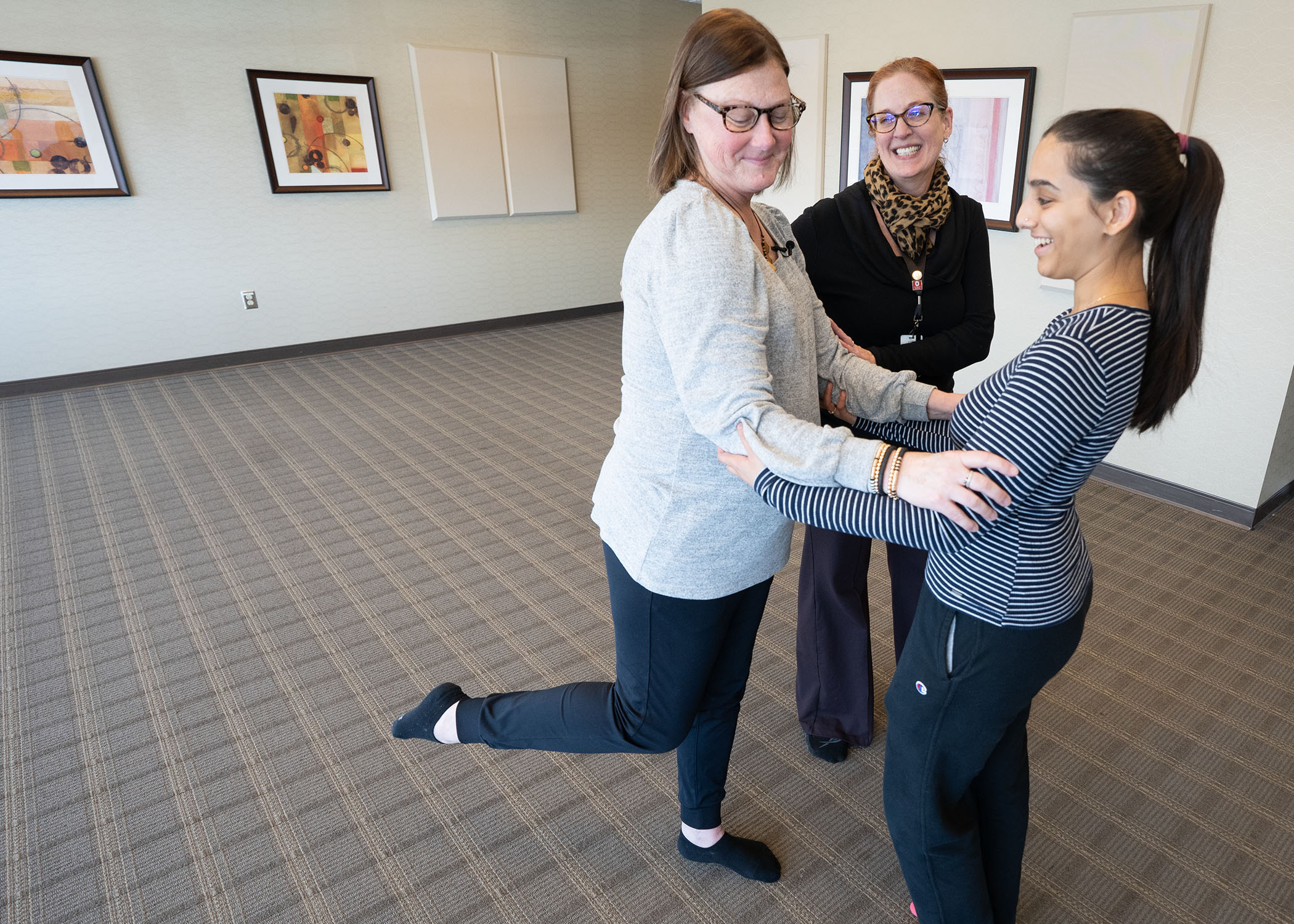NEW HYDE PARK, NY – After decades of pioneering bioelectronic medicine research, Northwell Health today announced the opening of its clinical Center for Bioelectronic Medicine. Those interested in participating in bioelectronic medicine clinical trials, including studies evaluating vagus nerve stimulation, can do so through the new Center. As bioelectronic medicine devices are approved for use, they will be offered to patients at the Center.
The first Center is located at 350 Community Drive in Manhasset, NY. The facility features a waiting area, patient rooms and a clinical space for research nurses, doctors and clinical trial coordinators to consult with patients and participants. Northwell intends to relocate and expand the Manhasset location within the next few years. Planning is underway for a second center located in Manhattan, NY.
“Northwell Health prides itself on offering patients innovative treatment. Bioelectronic medicine has shown benefit to patients in clinical trials, and with the development and expansion of the field, we have an opportunity to offer this cutting-edge treatment to our patients,” said Michael J. Dowling, president and CEO of Northwell. “Northwell’s Center for Bioelectronic Medicine is a unique destination where doctors, scientists and patients will explore and potentially benefit from today’s medical advancements.”
The scientific foundation of bioelectronic medicine stems from research conducted by Kevin J. Tracey, MD, president and CEO of The Feinstein Institutes for Medical Research, Northwell’s home of medical research, and author of the new book The Great Nerve – available today. For nearly four decades, Dr. Tracey and collaborators published their discoveries about a link between the brain, immune system, and inflammation and whether or not their connection could be modulated through technology and electrical signals, like vagus nerve stimulation. Today, bioelectronic medicine clinical trials are conducted at Northwell and around the world. In 2023, Northwell was a site for the SetPoint Medical RESET-RA study, which evaluated a novel treatment option for rheumatoid arthritis (RA) using neuroimmune modulation, a therapy that uses electrical stimulation to modulate functions of the immune system.
Dawn Steiner, one of the RESET-RA trial participants, has firsthand experience with the debilitating effects of RA. For more than a decade, the 58-year-old speech and language pathologist from Massapequa, NY, felt excruciating pain that often left her bedridden. An avid Mets fan and concertgoer, Dawn found herself unable to enjoy the things she loved – or even conduct everyday tasks, like brushing her teeth or tying her shoes – because of her RA flare-ups or her medication side effects. Over the years, she tried more than eight biological RA medications that often didn’t relieve her symptoms and made her feel troubling side effects. After seeing family and friends benefit from enrolling in clinical trials for other conditions, Dawn enrolled in the SetPoint Medical trial and today many of her symptoms are relieved.
“A year after receiving this therapy, I feel as good as I did before my RA diagnosis – like a different person. I feel better, and I’m able to just feel healthy and do all the things that make me happy without those awful, awful medications,” Steiner said. “To the researchers, thank you! I’m so glad you looked into a different type of technology. From my perspective, this is the future of rheumatoid arthritis treatment.”
The new Center will aim to connect participants like Dawn to bioelectronic medicine clinical trials. Current bioelectronic medicine trials underway at Northwell include treatments for pediatric inflammatory bowel disease, methods to stop excessive bleeding, treatments for post-traumatic stress disorders and brain implant applications to reverse paralysis.
“There is optimism that bioelectronic medicine could replace some drugs that have serious side effects and associated costs, and I am interested in continuing research in this field to better understand the language of the nervous system and see if we can use that knowledge to help the body heal itself,” said Dr. Tracey, Karches Family Distinguished Chair in Medical Research at the Donald and Barbara Zucker School of Medicine at Hofstra/Northwell. “Clinical trial participants are my heroes – their courage and commitment send ripples of change throughout medicine, bringing us closer to a future where we can treat diseases in safer, more effective, and personalized ways.”
At the Feinstein Institutes, medical researchers use modern technology to develop novel device-based therapies to treat disease and injury. Engineers, computer scientists, immunologists, neuroscientists, and clinicians develop cutting-edge medicine, including neuroimmune modulation, miniature implants for stimulating and recording the vagus nerve, noninvasive ultrasound neuromodulation to suppress inflammation, and novel brain-computer interfaces to overcome injuries of the nervous system.
In the early 2000, Dr. Tracey and his colleagues discovered that the brain regulates the production of inflammatory proteins, a key aspect of the body’s immune response. This brain-body-immune connection was termed the ‘inflammatory reflex.’ Despite the revelation more than two decades ago, a recent national survey conducted by Ipsos on behalf of the Feinstein Institutes suggests that many Americans are unaware of this connection between the brain and the body. According to the survey, nearly two-thirds of Americans (64%) don’t believe or don’t know that the brain controls inflammation. Uncontrolled inflammation can contribute to diseases like RA, Crohn’s disease, and inflammatory bowel disease. Dr. Tracey’s research led to the founding of SetPoint Medical in 2007; where he currently serves as an advisor. Dr. Tracey’s book, The Great Nerve, explores the groundbreaking discovery of how stimulating the vagus nerve can treat chronic illnesses and improve overall health, offering both scientific explanations and real-life patient stories.
For more information about bioelectronic medicine, click here. If you are interested in learning more about the center and current bioelectronic clinical trials offered at Northwell Health, click here or call 516-562-3467.





